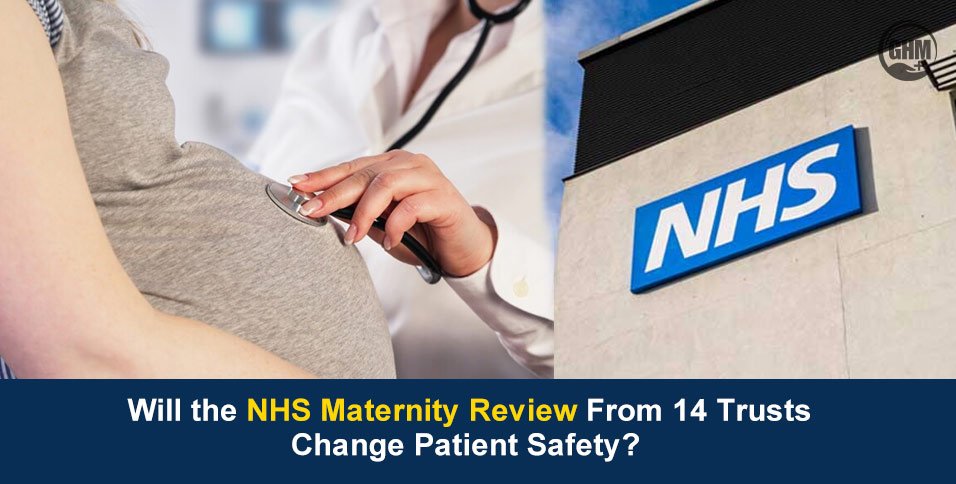As the world observes World Patient Safety Day on September 17, the spotlight is on the UK’s NHS maternity review, a major investigation into serious failures across 14 trusts in England. This rapid review aims to uncover systemic problems that led to preventable harm for mothers and babies over the past 15 years.
For many families, this is not just a matter of statistics and policies, but it is a painful reminder of lives lost and futures altered due to errors that could have been prevented.
“The courage shown by bereaved families in coming forward is extraordinary,” said Health Secretary Wes Streeting, “We owe it to them to make sure no one else experiences such tragedies.”
The Scale of the Problem
The inquiry has come after years of rising concerns about maternity care within the NHS. Reports have revealed patterns of,
- Delayed interventions during childbirth which lead to severe complications
- Poor communication between medical teams and families
- Failure to learn from previous mistakes, resulting in repeated errors
- Staff shortages that impact the quality of care
These issues were not isolated incidents but part of systemic failures. According to early estimates, dozens of babies and mothers suffered harm that could have been avoided with timely and appropriate care.
The Need on World Patient Safety Day
World Patient Safety Day is celebrated globally on 17 September. It is a time to reflect on preventable harm in healthcare. This year’s theme emphasizes “Engaging Patients for Patient Safety.”
The NHS maternity review perfectly illustrates why this theme matters. Many families felt their concerns were ignored or dismissed, leading to tragic outcomes. Patient voices were missing when they should have been central to the care process.
This inquiry is important on World Patient Safety Day as there is an opportunity to:
- Encourage open dialogue between patients and healthcare providers
- Prioritize safe maternity practices at both national and local levels
- Build systems that listen to and respect patient feedback
Key Areas the NHS Review Will Address
The maternity review will focus on four critical areas to improve safety:
1. Better Communication and Transparency
Many families reported being left in the dark about what went wrong during childbirth.
- Hospitals will be urged to provide clear, compassionate explanations when incidents occur.
- A national reporting system will be strengthened to track and learn from errors.
2. Strengthening the Healthcare Workforce
Staff shortages and burnout were significant factors in the failures.
- The review will recommend better staffing levels and training for midwives and doctors.
- Focus on mental health support for frontline workers to prevent mistakes caused by stress and fatigue.
3. Empowering Mothers and Families
Patients often sensed something was wrong but felt powerless to speak up.
- New guidelines will promote shared decision-making during pregnancy and birth.
- Families will have easy access to complaint systems that will ensure their concerns are taken seriously.
4. Creating a Safety-First Culture
Hospitals must move from a blame culture to a learning culture.
- Encourage staff to report near misses without fear of punishment.
- Regular safety audits will be made mandatory to prevent repeated errors.
Human Cost Behind the Numbers
Behind every statistic lies a story of heartbreak. Families have spoken about babies who suffered life-changing injuries due to delayed care or mothers who faced preventable complications.
One bereaved mother shared, “We tried to tell the staff something was wrong, but no one listened. Our baby could have been saved.”
These testimonies are a reminder that improving systems is not just about policy. It is about saving lives and protecting futures.
Lessons for Global Healthcare Systems
While the NHS maternity review is specific to England, its lessons are universal. Many countries face similar challenges in maternity care,
- Limited resources
- Understaffed hospitals
- Lack of patient involvement
World Patient Safety Day urges us to global collaboration. By sharing knowledge and solutions, healthcare systems worldwide can prevent tragedies and ensure safer maternity care for all.
A Chance for Real Change
The NHS maternity review represents a turning point. For too long, systemic problems were overlooked, and patient safety was left behind to operational pressures.
On World Patient Safety Day, there is hope that the lessons learned from this review will not only improve maternity care but also inspire wider reforms across the NHS and beyond.
Conclusion
The NHS maternity review is more than an inquiry. As the world marks World Patient Safety Day, this moment is a reminder that safe, compassionate care is a human right.
Families deserve to know that their voices will be heard and their loved ones protected. With bold action and genuine accountability, it can become the cause for a safer future in healthcare.













